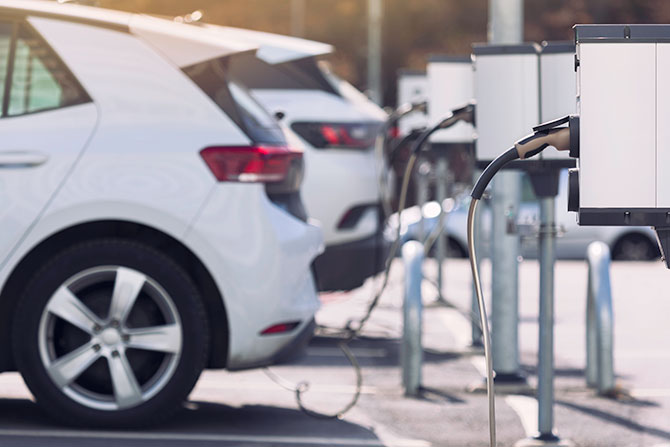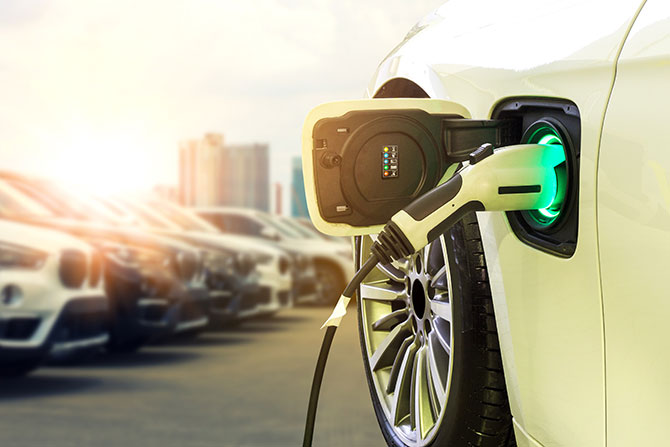The government can’t (and shouldn’t) force consumers into an EV, but the government can (and should) incentivize consumers to transition to an EV.
NJ CAR has been educating dealers for months about the proposed federal and state electric vehicle mandates aimed at dramatically increasing the number of EVs on the road. Dealers are “all-in” on EVs, but the Coalition has cautioned Governor Murphy and the New Jersey Department of Environmental Protection (NJDEP) to take a more realistic approach to achieving a 100% EV future.
Consumers want choice and don’t appreciate being told what they can and cannot buy. EV mandates, like the Governor’s mandate to have 35% EVs sold in New Jersey by 2027 and 100% EVs sold in New Jersey by 2035, are going to backfire. EVs currently account for less than 10% of all vehicles sold. It’s unrealistic to assign an arbitrary percentage to a year without any consideration for consumer interest and electric charging infrastructure and readiness. Consumers will decide when New Jersey becomes a 100% EV state, not government decision-makers. The government can’t (and shouldn’t) force consumers into an EV, but the government can (and should) incentivize consumers to transition to an EV. The following is a recap of the various state and federal government programs that aim to make EVs more affordable for consumers.
Charge Up New Jersey EV Incentive Program
New Jersey recently wrapped up the third year of the Charge Up New Jersey EV Incentive Program. The $300 million, 10-year Program provides $30 million per year to incentivize consumers to purchase EVs. Below are some of the eligibility requirements to qualify for a Charge Up New Jersey incentive:
- Eligible vehicles with an MSRP below $45,000 are eligible for a maximum incentive of $4,000. Eligible vehicles with an MSRP between $45,001 and $55,000 are eligible for a maximum incentive of $1,500. EVs with an MSRP over $55,000 are not eligible.
- Buyer must be a resident of New Jersey at the time of vehicle order, purchase or lease and must remain a resident for at least two (2) years following the purchase.
- The Program is limited to individuals only.
- Only vehicle transactions occurring after the official launch and before the official closing of the current year’s Program are eligible for an incentive.
- A vehicle ordered, purchased, or leased, and/or delivered out-of-state, is not eligible for the incentive. Any vehicle ordered online must be delivered in New Jersey to qualify.
- Purchasers agree to retain ownership, or an active lease agreement, and registration of the vehicle in New Jersey for a minimum of 36 consecutive months.
For more information on the program or to view a list of eligible vehicles, visit https://chargeup.njcleanenergy.com.
Exemption from New Jersey Sales Tax
The New Jersey Legislature exempts residents from paying State sales tax on the purchase or lease of a zero-emissions vehicle. With the current sales tax rate at 6.625%, this is a significant incentive that offers hundreds to thousands of dollars off the vehicle cost — at the point of purchase. To apply this incentive, the customer must fill out a Sales Tax Exempt Use Certificate (Form ST-4). Visit the NJDEP’s Drive Green website (https://dep.nj.gov/drivegreen/sales-and-use-tax-exemption) to view a list of vehicles eligible for the sales tax exemption.
Federal Tax Credit
The Inflation Reduction Act of 2022 changed the rules for tax credits on eligible battery and plug-in hybrid electric vehicles.
Under the new rules, the purchaser is not required to reach a minimum tax liability to secure a federal tax credit. However, the federal EV tax credit amount is affected by the individual’s tax liability and other factors. For example, if an individual purchases an EV eligible for the maximum $7,500 tax credit but owes only $4,000 in taxes, they will receive a $3,500 credit. Once a manufacturer sells 200,000 eligible plug-in electric vehicles, the available federal tax credit begins to phase out.
To qualify, the eligible vehicle must be bought for personal use, NOT for resale, and the buyer’s modified adjusted gross income (AGI) may not exceed $300,000 for married couples filing jointly, $225,000 for heads of households, or $150,000 for all other filers.
The amount of the credit depends on when you placed the vehicle in service (took delivery), regardless of purchase date and other factors. For more details regarding vehicle eligibility, purchaser eligibility and how tax credit amounts are determined, visit https://fueleconomy.gov/feg/tax2023.shtml.
Beginning in January 2024, the tax credit can now be implemented at the point of sale, with dealers applying for reimbursement from the IRS, which has said it will pay dealers within three days of application. For more details on the federal EV tax credit, visit https://fueleconomy.gov/feg/tax2023.shtml.









